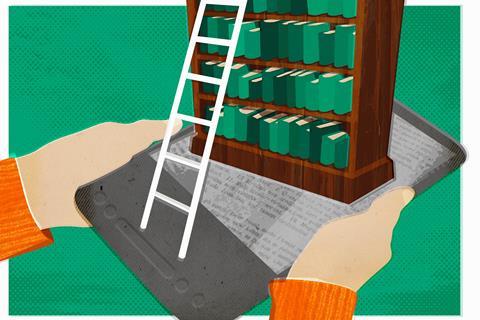Make your hard work during lockdown work hard for you now
Since the first school closures back in March 2020, teachers have become skilled providers of online learning. Like my colleagues, I sincerely hope that schools will be able to stay open this academic year, and that the challenges of school-wide, full-time remote learning are largely behind us. Happily, we are all back into the swing of face-to-face learning, but in September I found myself feeling pangs of regret that the online lessons our department worked so hard to prepare were sitting, abandoned, in archived Google Classrooms.
Rather than let those countless hours of work go to waste, in our school we invested a little time in collating our remote resources and organising them by topic in a fresh Google Classroom that has been shared with all members of the department. Since the start of term, we’ve been pleasantly surprised to find that this has led to unforeseen benefits that are making our lives a little bit easier and enhancing our educational offering to pupils.

Quick and meaningful cover
With Covid-19 and the usual winter illnesses doing the rounds, we’ve already found that pre-existing remote lessons have worked well as stand-alone cover lessons, as these tasks were designed for pupils to complete without the help of an expert in the room. Several topics were not covered during lockdown, however, and we’re still doing things the traditional way in these cases. However, using ready-made remote tasks wherever possible has taken the pressure off absent colleagues and has saved precious time for those setting the work before the morning bell.
Ready-made catch-up work
The relatively high rates of pupil absence in schools, relative to pre-pandemic levels, has meant many pupils require access to catch-up work. We’ve found that asking pupils to follow lessons prepared for remote learning has helped them to bridge gaps in understanding more successfully than merely copying the notes from a classmate. This strategy could also be helpful where pupils arrive midway through a school year or qualification and have missed whole topics. Again, some topics are missing but, depending on the success of this approach, we may consider plugging the gaps by gradually transferring existing resources from our scheme of work across to Google Classroom.
Enriching existing schemes of work
It is likely that, in all schools, a plethora of new resources were either created or sourced by individual teachers during remote teaching. Many of these are suitable for use in lessons, and would provide a greater variety of activities and increased opportunities for differentiation, so it would be a shame not to use them. Adding individual resources to schemes of work seems daunting, so our department has decided that individual teachers will add any additional resources or activities that they feel may be beneficial for each topic as we go along. This is the type of task that can fall to the bottom of the priority list, so we are going to try to build in regular time for this in our department meetings. Hopefully, by the summer we will have an enhanced scheme of work without a huge input of time and effort.
Flipped learning
For older pupils, many of the remote lessons we set followed a flipped learning pattern. Pupils would read some information or watch a teaching video and complete some structured questions on the content. They would then join a live video call and their understanding would be tested through further discussion and more challenging questions. We are now planning to use some of these resources to form the basis of flipped learning homework tasks, leaving more lesson time for focusing on pupils’ skills and understanding. The success of this will depend on pupils having fully engaged with the task set before lessons, or this could end up wasting time – we are anticipating that we will have to carefully consider which classes to try this with.
Providing independent revision resources
We have added our year 11 pupils to our GCSE departmental Google Classroom, where they can find online lessons that contain relevant notes, teaching videos, quizzes and tasks, all collated by topic. Pupils can access these resources at any time for extra help or as part of their wider revision. As well as providing pupils with more opportunities for independent learning, teachers are now able to signpost individuals towards specific online lessons when areas for improvement are identified. Of course, motivating pupils to access resources in their own time is a challenge, but at least some students have started using them to boost their understanding of trickier topics, and we are hoping that more will do so as the mock examinations approach.
Tips for organising your resources on Google Classroom
- Ask staff to unarchive last year’s Google Classrooms and add yourself as a teacher.
- Set up a new Google Classroom for each qualification (or year group) and repost lessons containing useful resources.
- Check each lesson has a descriptive topic name, eg collision theory.
- Add relevant staff and pupils to the Google Classrooms.
- Consider initially trying this for just one year group (or even just one topic), to see if it will work in your department.









No comments yet